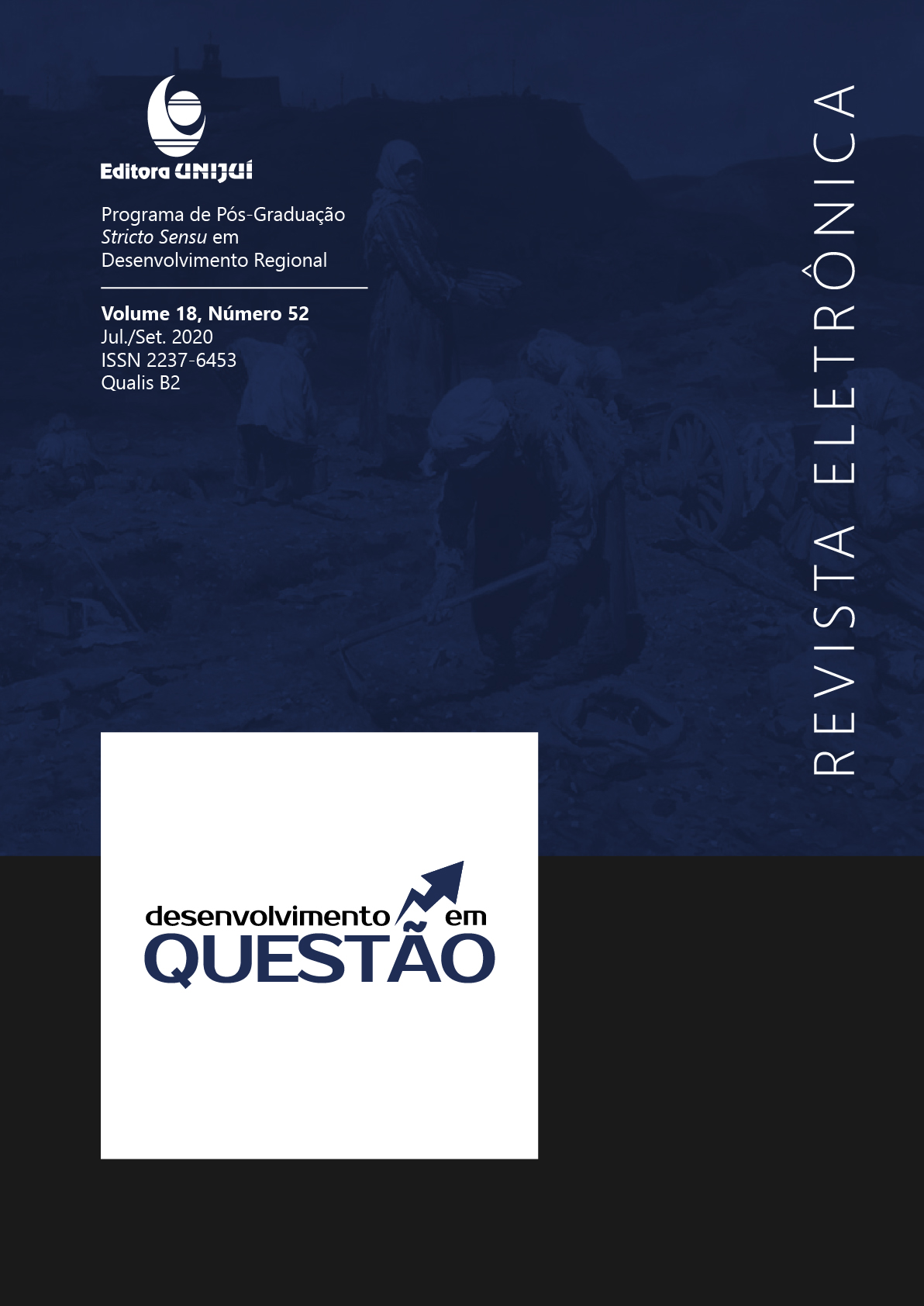Política Pública de Turismo e Desenvolvimento Local: análise sob o enfoque da escala humana
DOI :
https://doi.org/10.21527/2237-6453.2020.52.142-158Mots-clés :
Escala Humana, Políticas Públicas, Turismo, Estado da Bahia, Desenvolvimento LocalRésumé
Desde o final do Século XIX, várias abordagens sobre o tema do desenvolvimento foram discutidas na literatura acadêmica, em especial a abordagem do desenvolvimento vinculada a concepção econômica. Entretanto, a partir da década de 1980, outras abordagens foram ganhando espaço no ambiente acadêmico, que passa a dar espaço para abordagens com enfoque social, envolvendo temáticas abrangendo as políticas públicas direcionadas a educação, saúde, moradia, saneamento, lazer etc. Neste novo cenário de desenvolvimento, com características sociais, é que surgem autores buscando analisar a satisfação das necessidades humanas básicas. Para fins de estudo, utilizou-se a abordagem sobre Escala Humana de Max-Neef (1994) como fator central do estudo sobre as políticas públicas vinculadas ao setor turístico no Estado da Bahia. Diante do exposto, a pesquisa tem como objetivo geral propor uma estrutura analítica para avaliação das políticas públicas do turismo, enquanto agente de promoção do desenvolvimento local, sob a ótica da Escala Humana. Para tanto, optou-se pelo recorte da análise dos resultados do PROETUR, considerada uma das principais ações associadas a Política Nacional de Turismo. A opção metodológica se valeu da avaliação de indicadores sociais e econômicos associados ao conceito da escala humana. Os resultados encontrados apontam para a pertinência da estrutura proposta que sob esta ótica, aponta uma necessidade premente de que as Políticas Públicas de Turismo priorizem sua atenção as zonas turísticas mais afastadas do litoral baiano.
Téléchargements
Publié-e
Comment citer
Numéro
Rubrique
Licence
Ao publicar na Revista Desenvolvimento em Questão, os autores concordam com os seguintes termos:
Os trabalhos seguem a licença Creative Commons Atribuição 4.0 Internacional (CC BY 4.0), que permite:
Compartilhar — copiar e redistribuir o material em qualquer meio ou formato;
Adaptar — remixar, transformar e criar a partir do material para qualquer fim, inclusive comercial.
Essas permissões são irrevogáveis, desde que respeitados os seguintes termos:
Atribuição — Atribuição — os autores devem ser devidamente creditados, com link para a licença e indicação de eventuais alterações realizadas.
Sem restrições adicionais — não podem ser aplicadas condições legais ou tecnológicas que restrinjam o uso permitido pela licença.
Avisos:
A licença não se aplica a elementos em domínio público ou cobertos por exceções legais.
A licença não garante todos os direitos necessários para usos específicos (ex.: direitos de imagem, privacidade ou morais).
A revista não se responsabiliza pelas opiniões expressas nos artigos, que são de exclusiva responsabilidade dos autores. O Editor, com o apoio do Comitê Editorial, reserva-se o direito de sugerir ou solicitar modificações quando necessário.
Somente serão aceitos artigos científicos originais, com resultados de pesquisas de interesse que não tenham sido publicados nem submetidos simultaneamente a outro periódico com o mesmo objetivo.
A menção a marcas comerciais ou produtos específicos destina-se apenas à identificação, sem qualquer vínculo promocional por parte dos autores ou da revista.
Contrato de Licença (para artigos publicados a partir de 2025): Os autores mantêm os direitos autorais sobre seu artigo, e concedem a Revista Desenvolvimento em Questão o direito de primeira publicação.











